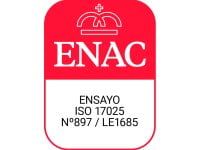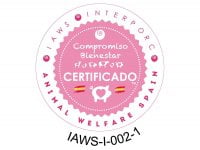Quality, Food Safety And The Environment
![]()
QUALITY
Our production system is adapted to the most rigorous quality standards and in accordance with the most demanding regulations. In addition, the entire process is closely monitored by in-house professionals, who verify that the product and all its processes comply with our company’s quality and food safety policy.
WELFARE QUALITY
QUALITY SEALS; CONFIDENCE AND PRESTIGE
Our quality seals and certificates, which are periodically renewed, guarantee the highest levels of quality and food safety in our company’s processes, products and services.
VETERINARY
THE ENVIRONMENT
TRACEABILITY FROM START TO FINISH
Traceability systems are extremely important considering they provide internal information that facilitates process control and management, they help to guarantee safety, and they also help to locate and immobilise products, if necessary.
INTERNAL LABORATORY
Our in-house laboratory is divided into four distinct areas that apply the latest and most alternative scientific techniques. The parasitology laboratory with its corresponding trichinoscopic area, the water laboratory, where water parameters are tested and validated both for drinking water and for the treatment of wastewater, the microbiology laboratory, for processing samples and performing useful life studies, and the Covid laboratory, where, in addition to analyzing human samples, analytical controls on meat products, surfaces, work utensils, and packaging material are validated.
Moreover, our in-house laboratory has adopted a highly innovative trichinae larvae detection method that has made NORFRISA the only plant in the country to have implemented this. This is an alternative method in which the decantation of samples is replaced by a filtration method, and the final step for detection is a latex agglutination test which replaces trichinoscope visualization. The implementation of this methodology was approved by the Centro de Investigación y Tecnología Agroalimentaria de Aragón, an organization that validated this novel technique in order to be able to implement it in the NORFRISA laboratory as well as in the different trichinae laboratories in Spain.






